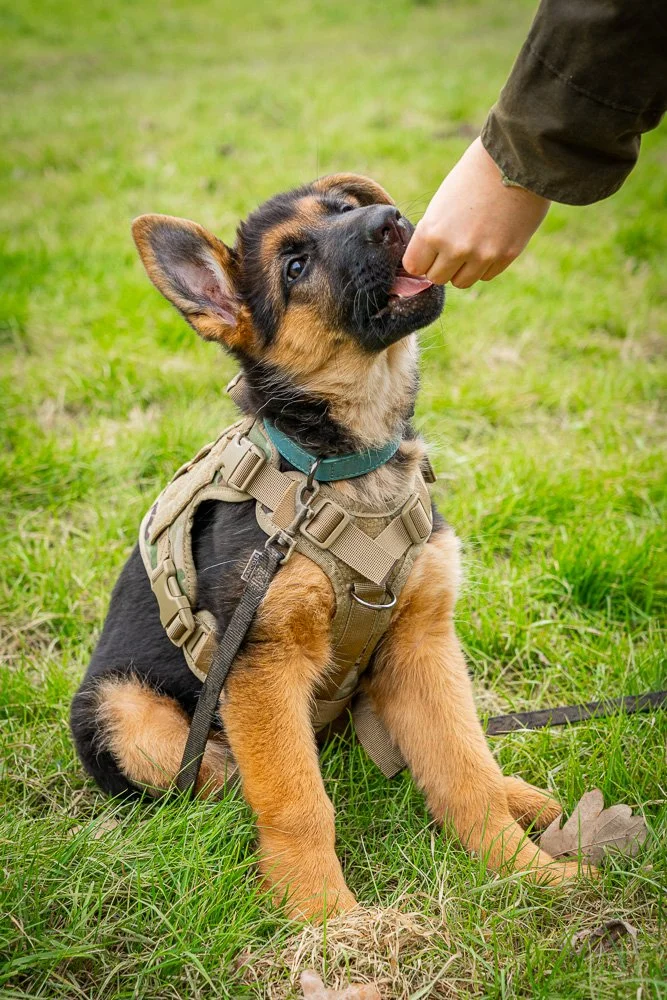Dog Recall Issues or Failing to Return
In terms of training related areas that can cause worry and frustration, it must be the lack of recall which tops the list. The best time to set up sound recall practice is with the first outings with your puppy using a long line and rewards for focus and attention. Dogs that do not recall (some may actively run away!) present a danger both to themselves and the unsuspecting public such as a motorists on a public road.
The dangers of a dog not recalling to its owner are significant and can lead to serious consequences. A reliable recall command is essential for the safety and well-being of both the dog and those around them. Without this, dogs may run into hazardous situations such as:
Traffic accidents: Dogs off lead without a prompt recall risk being struck by vehicles, leading to injury or death. It is essential to take out public liability insurance as a minimum for your dog, even if you do not take out health insurance.
Dog fights and injuries: Failure to return can result in altercations with other dogs, causing physical harm.
Poisoning hazards: Dogs may ingest toxic substances from the environment or discarded food before the owner can intervene.
Getting lost: Dogs that do not come back when called are at higher risk of becoming lost or stolen.
Disturbance to wildlife and livestock: Uncontrolled dogs may chase or harm wildlife or farm animals, causing stress and potential legal ramifications.
Legal consequences: In many areas, an owner can be fined or held responsible if their dog causes harm due to poor recall.
Therefore, building a strong, dependable recall through patient, consistent training is crucial. It helps build trust and ensures lasting control, enhancing safety for the dog, owner, and the community.
As the responsible owner you are ultimately liable for any such accidents and their outcome, so you can see how the simple act of not returning when called can have multiple and potentially severe consequences. Non recalling dogs are also in my experience more likely to become involved with aggressive behaviour once they are beyond your immediate control.
Understanding the challenges faced by dog owners dealing with difficult behaviours is essential, and it is important to acknowledge the frustration and worry such issues can cause. With patience, consistent effort, and the right approach, many behavioural problems can be managed and often overcome. Trust is built gradually, and through tailored guidance and ongoing support, lasting improvements are achievable, helping families to enjoy a more harmonious relationship with their dogs.
Once a dog is reliably trusted off lead, it unlocks a newfound level of freedom and enrichment that significantly enhances their quality of life. The ability to explore environments at their own pace, engage in natural behaviours such as sniffing and running, and interact safely with other dogs and people contributes to both their physical wellbeing and mental stimulation. This trust, built through consistent training and positive reinforcement, reduces anxiety for both dog and owner, fostering a stronger bond and allowing for more spontaneous, joyful experiences. Ultimately, off-lead freedom supports a happier, more balanced dog that thrives in real-life situations.
